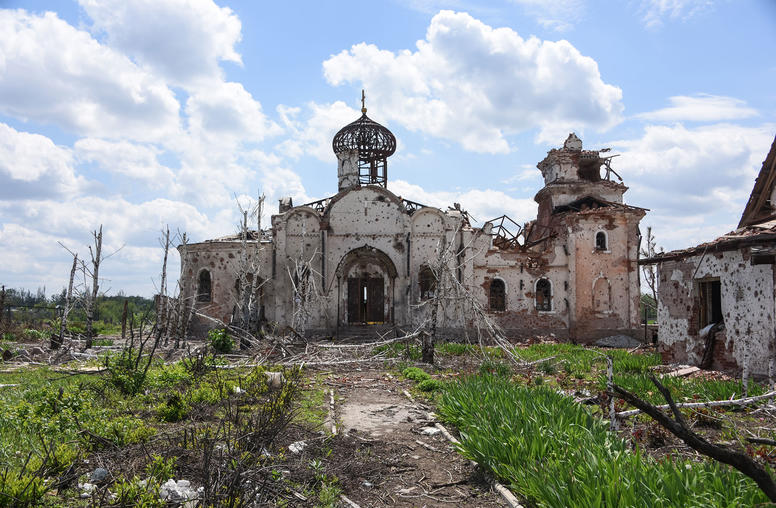Applied Conflict Transformation Center
The U.S Institute of Peace’s Center for Applied Conflict Transformation (ACT) is built on the premise that there are common tools and approaches to peacebuilding that are adaptive, but applicable to peacebuilding globally. We serve as the hub of the Institute’s common resources for governments, organizations, and individuals seeking to prevent, mitigate, and resolve violent conflict worldwide. ACT prioritizes evaluation and learning from our programs to adapt and improve our work. As of 2017, ACT is actively engaged in more than 40 fragile and conflict-affected countries around the world.
The Center leads the Institute’s long-standing engagements on:
- Justice, security, rule of law: ACT’s Justice and Security Dialogue (JSD) program, which brings together police and local communities to build trust and facilitate collective problem-solving, is currently being implemented in several countries across West Africa, including Burkina Faso, Mali, Nigeria, Niger, Senegal, and Tunisia. USIP also spearheads the International Network to Promote the Rule of Law (INPROL), a global online community of practice, comprised of over 3,000 rule-of-law practitioners from 120 countries.
- Inclusive societies – particularly engagement with religious actors and youth: ACT currently focuses on mapping of religious actors at the intersection of peace and conflict in Libya, Pakistan, and South Sudan. Across Africa and the Middle East, and now in Colombia, the Center’s Generation Change Fellows Program works to equip young peacebuilders with the skills needed to manage conflict nonviolently.
ACT houses and convenes USIP’s experts on current challenges to peace, including:
- Preventing electoral violence: ACT has played a pioneering role in broadening the understanding of election violence. In 2017, USIP published Electing Peace, a seminal research volume that examines the effectiveness of common practices to prevent election violence—paving the way for further research in Liberia and Kenya and evidence-based prevention in Pakistan, Burma and other USIP priority countries.
- Addressing violent extremism: ACT leverages and integrates the learning on violent extremism from research and projects across the Institute, including those of the RESOLVE Network, which launched its first local observatory on conflict and extremism in Bangladesh in 2017.
- Assessing the implications of resource scarcity: ACT views resource scarcity and abundance as a significant challenge to fragile and conflict-affected communities worldwide.
ACT continues to identify, design, and pilot the next generation of peacebuilding approaches and tools for effective negotiation, mediation, and dialogue; nonviolent movements; reconciliation; and promoting inclusive peace processes.
The Center brings strategic coherence and consistency to USIP’s core capabilities – research, grant-making, fellowships, publishing, education and training, and field practice – to maximize our impact.
USIP’s Global Campus
The Global Campus, part of the Academy, leverages the latest modern communication technologies to extend online education and training opportunities to individuals across the world. Now, from almost anywhere, professionals can increase their knowledge and skills to prevent violent and transform violent conflict through accessible, engaging online training opportunities.
USIP’s Conflict Management Training for Peacekeepers
We are excited to announce that USIP’s Conflict Management Training for Peacekeepers (CMTP) program training-of-trainers application (version Française) has been extended until August 9, 2020!
Since 2008, USIP has provided training on conflict management skills to more than 7,000 peacekeepers from 21 troop contributing countries (TCCs) deploying to 8 United Nations and African Union peacekeeping missions. The CMTP program provides a five-day training that strengthens the capacity of peacekeepers to protect civilians through the nonviolent resolution of conflicts. This training provides peacekeepers with knowledge and skills in the areas of conflict analysis, communication, negotiation, and mediation through a protection of civilian lens in order to improve their interactions with local populations and mission actors and more effectively carry out their mandate.
Additionally, the training equips peacekeepers with a range of skills and knowledge to strengthen their capacity to think deeply about culture, human rights, and gender. The Protecting Civilians through Conflict Transformation curriculum is rooted in principles of adult learning and thus builds on peacekeepers’ existing experiences and knowledge.
Given a recent revision of the training curriculum, the CMTP program is expanding its existing cadre of civilian trainers and mentors to deliver the Protecting Civilians through Conflict Transformation training and to mentor and coach TCC instructor cadres to deliver the training. You can find more details about, and submit your application for the program, here. For questions about the application or the process, please email Peacekeepertraining@usip.org.





